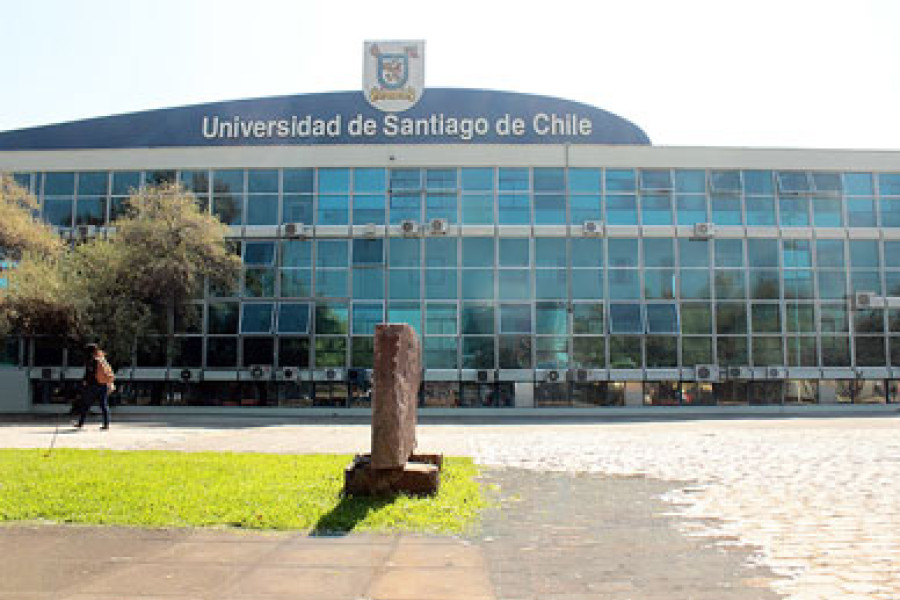Between October 09th and 12th, representatives of all the countries in Latin America and the Caribbean will participate in more than 50 lectures and symposiums at Universidad de Santiago de Chile, where they will contribute with their multidisciplinary views about the scientific, technological and cultural aspects of this geographical area.
This important meeting will have the presence of the Argentinean poet Ernesto Kahan, who is part of the International Physicians for the Prevention of Nuclear War Federation (Recipient of the Nobel Peace Prize 1985) and the renowned Brazilian economist and social scientist, Theotonio dos Santos, a leading exponent of the dependency theory.
According to Dr Fernando Estenssoro, acting director of the Institute for Advanced Studies of Universidad de Santiago and member of the organizing committee, this fourth version of the congress seeks to strengthen the development of the scientific and academic thinking in Latin America, “In order to benefit the people in our region and the world, showing our points of view and our demands.”
On October 09th, the opening ceremony of the “IV Congress on Sciences, Technologies and Cultures: Looking towards the future of Latin America and the Caribbean” was held at the Aula Magna of Universidad de Santiago de Chile. The activity was organized by the Institute for Advanced Studies (IDEA, in Spanish) of Universidad de Santiago to promote a multidisciplinary debate on different issues that affect this part of the world.Dr Fernando Estenssoro, member of the organizing committee of the congress said that they had high expectations. The activity finished on October 12th and it had the presence of more more than 2,000 academics from Latin America and the world.According to Dr Estenssoro, the purpose of the activity is to offer a common space where academics and scientists can meet and study different phenomena of the Americas and the world.“This is a multidisciplinary congress, where the experiences that are analyzed are considered from a regional point of view, even if they are local; that is to say, how they affect Latin America and the Caribbean, in relation to their current problems and the current world,” Dr Estenssoro said.In this context, “It is a congress that seeks to strengthen the development of the scientific and academic thinking in Latin America,” he added. It covers phenomena of philosophy, political science, sociology and medicine, but from a multidisciplinary point of view and in relation with the region.Contribution of the congressDr Estenssoro says that to arrange a multidisciplinary meeting like this means a big challenge, as it is logistically difficult to organize the schedule of so many specialists and, for example, to find a place to hold the activity.The series of panels of the congress were “A contribution, because sometimes we talk about doing multidisciplinary or even interdisciplinary analyses, but how? And this congress helped to put in practice what we usually keep as ideas.”Dr Estenssoro says that bringing this congress to life required important efforts and, as a consequence, people from different parts of the world were able to appreciate the spirit of Universidad de Santiago with regard to the development of research in all the fields of knowledge.“It has been a huge challenge. We are proud of having held this congress at Universidad de Santiago because experts from all over the world were participating and they were able to see our efforts to develop these research lines,” he said.“For the characteristics that the congress has, it is a pioneering activity in Latin America. There have been many disciplinary meetings; for example, historians in Latin America, political scientists in Latin America or linguists in Latin America; however, we are pioneers in this multidisciplinary meeting,” he explained.New bloodDr Estenssoro explained that the former versions of the congress were the breeding ground for many publications that are part now of the main debates in the most important universities in Latin America.In this regard, “It is cutting-edge knowledge, it is what our researchers are developing now, that essentially strengthens the work done by Latin American academics and scientists,” he said.“What is most important is that our scientists get to know each other, share, debate, and produce joint knowledge,” he added.The organizers of this fourth version of the congress set three goals. “First, we wanted to get out of the local sphere, where the national domain has to contribute to regional integration; second, it had to involve interdisciplinary work, and third, the work had to be done by academic networks,” he said.“The idea is that researchers at the continent get to know each other, learn of what is being done, work together and read publications not only from Europe or USA, but also from Latin America. All this to benefit people in our region and in the world, because we want to contribute with our points of view and our demands,” he added.Renowned speakersSeveral worldwide renowned researchers and theorists participated at the meeting held at Universidad de Santiago.One of the speakers was, for example, Dr Ernesto Kahan, an Argentinean physician and poet who received the Nobel Peace Prize in 1985), on behalf of the International Physicians for the Prevention of Nuclear War (IPPNW) Federation.Theotonio dos Santos was another speaker. He is a social scientist, and renowned thinker and forerunner of the dependency theory. His ideas about the world economy based on an unbalanced model in which developed countries have a monopoly of the most important decisions and poor countries that produce raw materials have minimal returns, marked a milestone in the Latin American sociology“He is one of the most important exponents of the dependency theory of the 60s. He came because our work matters to him,” Dr Estenssoro concluded. Translated by Marcela Contreras


